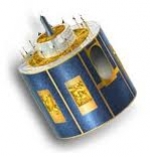Displaying items by tag: SEVIRI
MSG - Meteosat Second Generation
MSG, Meteosat Second Generation, is a serie of geostationary meteorological satellites operated by EUMETSAT.
It consists of a series of four geostationary meteorological satellites, along with ground-based infrastructure, that will operate consecutively until 2020. The MSG satellites carry a pair of instruments — the Spinning Enhanced Visible and InfraRed Imager (SEVIRI), which has the capacity to observe the Earth in 12 spectral channels and provide image data which is core to operational forecasting needs, and the Geostationary Earth Radiation Budget (GERB) instrument supporting climate studies.
It was designed in response to user requirements to serve the needs of Nowcasting applications and numerical weather prediction. In addition the GERB instrument provides important data for climate monitoring and research.
The MSG satellites are spin-stabilised like the previous generation, but with many design improvements. The more frequent and comprehensive data collected by MSG also aids the weather forecaster in the swift recognition and prediction of dangerous weather phenomena such as thunderstorms, fog and explosive development of small but intense depressions which can lead to devastating wind storms.
The MSG satellites are 3.2 m in diameter and 2.4 m high and spins anti-clockwise at 100 RPM at an altitude of 36,000 km.
On January 29, 2004 the first Meteosat Second Generation satellite MSG-1, renamed to Meteosat-8, commenced routine operations.


